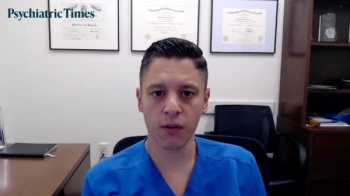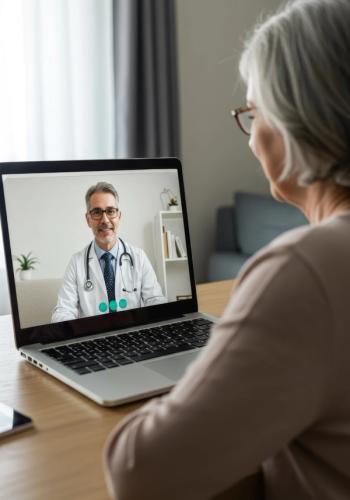
Medication Modification Equivalent for Virtual and In-Person Psychiatric Visits
Mental health leads with 36% of all outpatient visits and 39% of all telehealth services. What effect does this have on psychiatric practice?
CLINICAL INSIGHTS
Over the past 3 years, the worldwide spread of COVID-19 has created disruption and change in nearly all aspects of our lives. For mental health services, the transition to virtual rather than in-person care has been generally successful. At its peak in March through August 2020, 40% of all outpatient visits were provided virtually by mental health providers, compared to only 11% by other providers.1 After removal of most limitations, mental health still leads, accounting for 36% of all outpatient visits and 39% of all telehealth services.1
Most of the studies examining the adequacy of
However, participants in these pre-COVID-19 studies chose to be involved in a telehealth study. Patients and clinicians had telehealth forced upon them through the COVID-19 shutdowns. That difference is a potentially important variable.
Medication change in treatment is generally driven by patient complaints or clinician observations of patients’ presentations.11 It can serve as an objective measure of clinician involvement in the evaluation process.12 We performed a quality assurance retrospective chart review examining the objective outcome of medication intervention comparing individuals who attended the same clinic remotely or in person. The study was performed after the shutdown restrictions were slowly being lifted in 2021 and 2022, and some patients were transitioning back to in-person visits.
We examined 280 visits among 173 patients. The majority of these visits were telehealth (224, or 80%). There were 115 women, 57 men, and 1 unspecified gender. The primary diagnoses were major depressive disorder, generalized anxiety disorder,
Telepsychiatry appears to be here to stay. Additional studies need to be done to confirm equivalence of remote versus in-person outcomes. However, the early results of our study and the current literature suggest that use of telehealth for mental health conditions is a reasonable option.
Dr Mumtazis a PGY-1 resident in the department of psychiatry and behavioral sciences at the University of Louisville School of Medicine in Louisville, Kentucky. Dr Adigun is research coordinator at University of Louisville Division of Infectious Diseases. Dr El-Mallakh is a professor in the department of psychiatry and behavioral sciences and director of the Mood Disorders Research Program at the University of Louisville School of Medicine in Louisville, Kentucky.
Disclosures: Dr El-Mallakh is a speaker for Idorsia, Indivior, Intracellular Therapies, Janssen, Lundbeck, Noven, Otsuka, Sunovion, and Teva.
References
1. Lo J, Rae M, Amin K, et al. Telehealth has played an outsized role meeting mental health needs during the COVID-19 pandemic. Kaiser Family Foundation. March 15, 2022. Accessed September 21, 2022.
2. Mann DM, Chen J, Chunara R, et al.
3. Tasman A.
4. May C, Gask L, Atkinson T, et al.
5. Wagnild G, Leenknecht C, Sauher J.
6. Karimi M, Lee EC, Couture SJ, et al. National trends in telehealth use in 2021: disparities in utilization and audio vs. video services. (Research Report No. HP-2022-04). Office of the Assistant Secretary for Planning and Evaluation, US Department of Health and Human Services. February 2022. Accessed September 21, 2022.
7. Hubley S, Lynch SB, Schneck C, et al.
8. Urness D, Wass M, Gordon A, et al.
9. Connolly SL, Miller CJ, Gifford AL, Charness ME.
10. Parikh SV, Taubman DS, Grambeau M, et al.
11. Hodgkin D, Stewart MT, Merrick EL, et al.
12. Alleyne JE, Bashir AS, Birdwhistell ML, et al.
Newsletter
Receive trusted psychiatric news, expert analysis, and clinical insights — subscribe today to support your practice and your patients.







